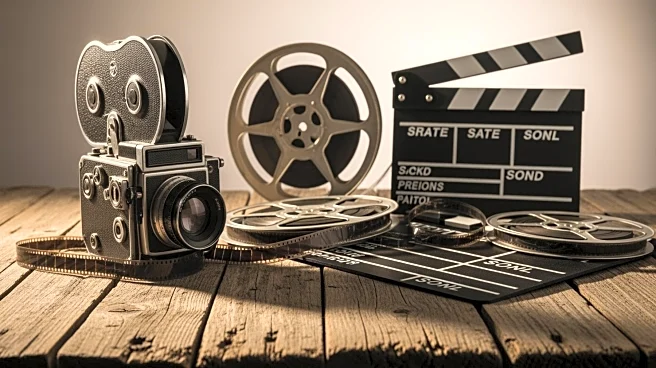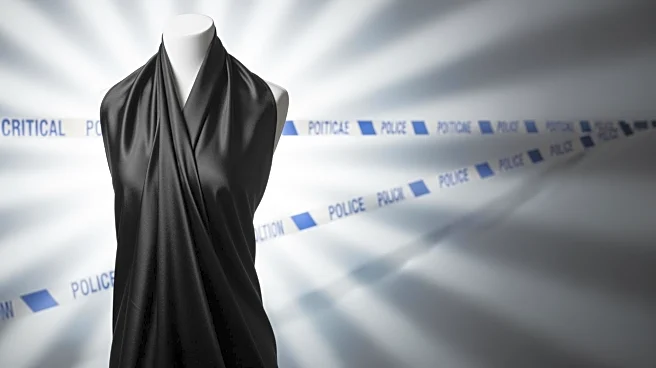What's Happening?
A new documentary titled 'Riefenstahl' directed by Andres Veiel explores the life and work of Leni Riefenstahl, a filmmaker known for her association with Nazi propaganda. The documentary delves into Riefenstahl's aesthetic obsession with beauty and her complicity
with the Nazi regime. It challenges her claims of being apolitical, revealing her close ties to Hitler and the influence of fascist ideals in her work. The film uses material from Riefenstahl's estate, including letters and recordings, to portray her as a physical and emotional bully who manipulated her subjects.
Why It's Important?
The documentary 'Riefenstahl' is significant in understanding the role of media in propagating fascist ideologies. Riefenstahl's work, particularly 'Triumph of the Will' and 'Olympia,' played a crucial role in promoting Nazi ideals through visual imagery. By examining her legacy, the documentary highlights the dangers of aestheticizing political ideologies and the impact of media on public perception. This exploration is relevant in today's context, where media continues to influence societal attitudes and political movements.
What's Next?
The release of 'Riefenstahl' may prompt further discussions on the ethical responsibilities of filmmakers and the impact of visual media on historical narratives. As audiences engage with the documentary, there may be increased interest in exploring the intersection of art and politics, leading to more critical analyses of media representations. The documentary could also inspire filmmakers to examine their own practices and consider the broader implications of their work on society.
Beyond the Headlines
Riefenstahl's legacy raises important questions about the relationship between art and ideology. Her work serves as a cautionary tale of how aesthetic pursuits can be intertwined with political agendas, influencing public consciousness. The documentary encourages viewers to critically assess the media they consume and consider the underlying messages and intentions. This examination of Riefenstahl's work may contribute to a broader understanding of the power dynamics in media production and the importance of ethical storytelling.















